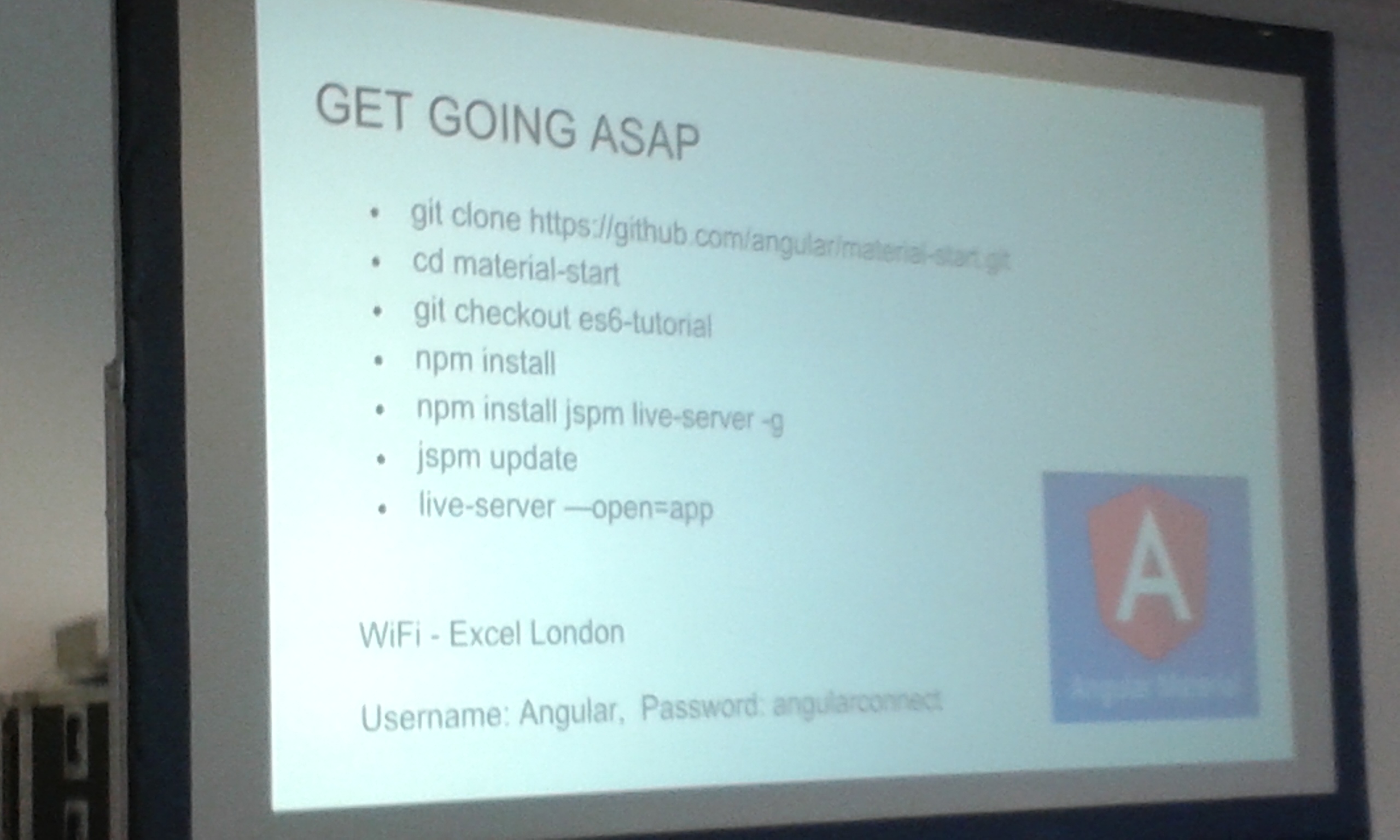AngularConnect – 27th/28th September 2016 London ExCeL
Written by Karen Scott
Thanks to Women Who Code, I was given a full pass to this two-day conference at ExCeL. The two days were focused on Angular 2, which had gone live within the last few months. The opening keynote included an exposition of the key features of Angular 2, especially its optimization features, maximizing speed and efficiency. We heard from representatives of LucidChart, who are already using Angular 2, about the ahead of time (AOT) compiler, that improves startup times, and the improved change detection that makes page updates much faster. We heard about Angular Everywhere, which allows single page apps to work offline and how we can produce mobile apps that feel native but are built for any platform. We also heard about testing platforms such as Karma, Jasmine and Protractor and their support for Angular 2 components. Finally we heard about Apollo and GraphQL that are supporting the move from page-based to component-based development and integrate well with Angular 2.
There were 2 talk tracks, workshop space, office hours ‘clinic’ space and a panel-led discussion based track. From my own perspective, I felt that my experience of Angular was not deep enough to participate effectively in anything other than the talk and workshop tracks. There was a wide range of topics to choose from and I decided to focus on cross-platform, mobile development and progressive web apps.
Jeff Cross and Alex Rickabaugh, in two separate talks, explained some targets for mobile development such as quick response time, under 60 frames per second animation, idle time included and maximum load time for content of 1s. Alex explained some bootstrap features of Angular 2 that allow only the data that the app needs straight away to be loaded on start and the rest to be loaded in the background and cached where possible. Jeff talked about some advantages of web based mobile apps vs native apps, in terms of a removal of barriers to installation and less need to republish, although he did warn that native code is always better when device features are needed.

For the rest of Day One, the focus of the sessions I chose was on Search Engine Optimisation and on progressive web apps. I learnt quite a bit about how bots index pages and how we can think about our HTML and scripting to ensure that the site gets full indexing. This might be by making links with < a > tags rather than using the onClick event, having one URL per piece of content and making the page renderable, maybe using the pre-rendering and other features of Angular Universal. I also learnt about Ionic as one platform for building web apps using Angular components, and about service workers and manifests and their role in the building of a web app.
On day two I decided to try the workshops. The morning workshop was on Angular Material. It took use through the process of building with Angular Material, the components and APIs available. This was a reasonably easy to follow tutorial with plenty of exercises and explanation. Set up was a bit tricky for me after a bit of a fight with the wi-fi but was painless once started and the workshop was structured so that you could jump in at any time. I managed to catch up, just.
The afternoon workshop was cancelled so I attended a talk on testing, learning about the Angular testbed component which provides services such as compilation, injection, etc. There was a talk on connecting your Angular app with any existing backend, using the GraphQL APIs. This severely tested my understanding and I need to do some more research to get to grips with this.
My final talk session (before the closing panel session) was on accessibility. This was a really interesting talk by Marcy Sutton, who had a lot of advice to give on improving accessibility, especially using the ARIA module. Her advice included writing meaningful HTML, enabling the keyboard, handling focus, alerting the user and the importance of testing for accessibility.
The whole conference team answered questions posed by delegates in the closing session. Prizes were given for the hack event (held on the first night) and the best tweets posted during the conference.
This was a great experience which I could not have had, having no company behind me to sponsor my place, without the help of Women Who Code. I am in the first stages of a startup, a social enterprise that will help young people in full-time education to develop their coding skills and their employability skills through working with professionals to develop mobile apps for charities, non-profits and small startups. Being able to develop cross-platform is probably the ideal way for us to go and Angular 2 is a strong contender as a development platform. I have some experience in developing with Angular and feel that I might make a more informed case for using Angular 2 and developing web-based, rather than native, mobile apps with the lead development professional I am looking to work with (position currently advertised at. This conference has been so helpful. It even included a session on mindfulness, which I have put into practice each day since. Thank you WWCode.
Karen Scott's Website
Karen Scott on Twitter
Karen Scott on LinkedIn
Research Project website
